Key opportunities
-
Renewable Energy
-
Sustainable infrastructure
-
Lifestyle & consumer
-
Innovation
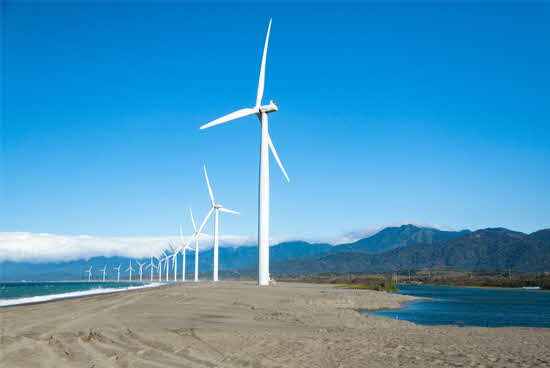
In 2023, the Philippines derived 53% of its energy from coal and fossil fuels, 13% from natural gas, and 30% from renewables including biomass, geothermal, hydropower, solar, and wind. Moving forward, the Philippine government aims to grow its renewable energy generation capacity to at least 35% of the power mix by 2030 and more than 50% by 2040, focusing on solar, onshore and offshore wind.
To accelerate the development of renewable energy projects in the country, the Philippines Government has liberalized the sector, allowing foreign companies to fully own, develop and operate renewable energy generation projects. As a result, the country has been seeing an uptick of projects in solar, onshore and offshore wind. The government is also revising regulations to encourage the adoption of waste-to-energy technologies, and keeping an eye out to new technologies such as hydrogen/ammonia and improved grid efficiency in the longer term.
The Philippines' strong commitment to renewable energy, coupled with recent reforms favouring international investors, creates prime opportunities for companies to enter the market. Singapore companies can participate in the market as project developers in the solar, onshore and offshore wind sectors, or as solution providers across the value chain in partnership with local developers. These include solutions for battery storage and power plant management.
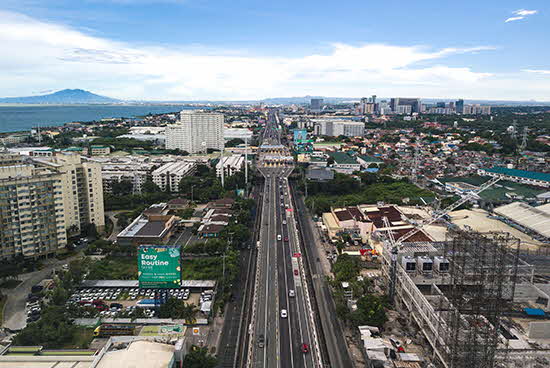
With over half of the Philippines' population living in urban areas of which 25% are concentrated in Metro Manila alone, the country faces increasing pressure on its infrastructure and services to cater to the needs of the growing population. This has spurred both the public and private sector to seek solutions to enhance city liveability and connectivity.
Water
Water security remains a priority for the Philippine government despite improvements in management systems and environmental regulations alongside growth of water supply systems. With water shortages projected within the next decade, the country seeks innovative solutions across the water treatment and distribution value chain. Singapore companies can tap on these demands to offer integrated water management solutions, from desalination and reverse-osmosis to municipal and industrial water treatment.
To facilitate market entry for Singapore companies, EnterpriseSG is partnering with PUB, Singapore Water Association and global accelerator ImagineH2O to uncover opportunities with major Philippine water utilities for technology pilots and strategic partnerships.
Smart and sustainable infrastructure
Metro Manila's private sector is embracing smart and sustainable urban solutions. Major developers such as SM Prime Holdings and Ayala Land are integrating smart and sustainable solutions to elevate its commercial and residential projects. These solutions include energy-efficient lighting, rainwater harvesting systems, eco-friendly building materials, smart building and estate management systems and smart security solutions.
The Philippine government is also leading the drive towards sustainable developments with the development of New Clark City, owned and managed by the Bases Conversion and Development Authority (BCDA). The city is envisioned to be the Philippines’ first smart, green and disaster-resilient city, accommodating up to 1.2 million people while providing a space for businesses and industries to grow.
Singapore companies can leverage the momentum to offer smart and green solutions in city, building, and electric vehicle ecosystem developments.
Connectivity
The Marcos Administration's "Build, Better, More" program commits 5-6% of annual GDP to infrastructure development, focusing on major transportation initiatives. This includes 40 flagship infrastructure projects and 24 additional transport developments, spanning bridges, airports, rail networks, and roadways. Supporting this expansion, the Department of Transportation (DOTr) has approved five public-private partnership (PPP) projects to modernise airports, ports, and bus systems across the country, signalling the country’s strong push to enhance transport infrastructure.
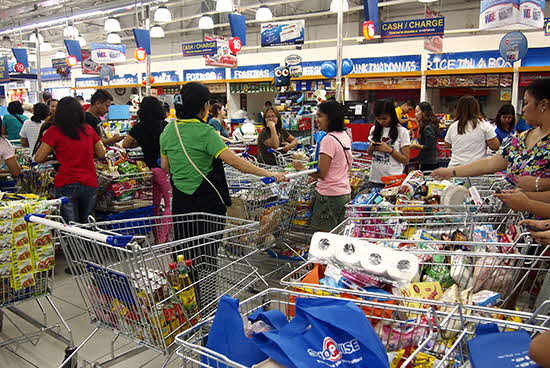
The Philippines is Southeast Asia's second-largest consumer market, with a population of over 115 million. It is further projected to reach 126 million by 2030. Anchored by its strong mall culture, Metro Manila continues to serve as a prime entry point for international brands. While the market is already home to many international brands, new brands looking to enter the market can still find their place in the dynamic retail landscape.
While Filipino consumers largely prefer physical retail channels, brands can also consider establishing an e-commerce presence as a complementary strategy to grow its reach and presence in the market. In the Philippines, the top e-commerce channels are Shopee and Lazada.
To help manage local regulations and navigate the dynamic and competitive retail landscape, many foreign companies choose to work through franchise or distribution partnerships. There is no minimum paid up capital required for such arrangements.
However, companies who are looking to have a greater degree of control with more than 40% ownership can now enjoy a lowered minimum paid-up capital requirement of PHP25 million (approximately USD500,000) following reforms under the Retail Trade Liberalisation Act in 2022.

The Philippines' startup ecosystem is experiencing rapid growth, supported by strong corporate investment and government initiatives. Home to close to 1,100 startups, 60 incubators and accelerators, and 50 venture capitalists, the country has climbed to the 53rd position in the 2024 Global Innovation Index, with ambitions to reach the top 50 by 2028.
Key sectors like fintech, healthtech, e-commerce, and agritech have gained traction, attracting a record-breaking USD1.4 billion in funding in 2024, a 50% increase from 2023. This growth is bolstered by supportive government policies, including the Philippine Startup Development Program (PSDP) and the 2019 Startup Innovation Act, which streamlines business incorporation for startups and offers incentives to founders.
As a key startup hub in Asia, EnterpriseSG drives platforms such as open innovation challenges to match and pilot solutions from Singapore startups and firms to meet pressing business needs of in-market corporate partners.
The Global Innovation Alliance Manila provides market acceleration programmes targeted to help companies like yours enter the market through a structured programme and opportunities to pitch and connect with local demand drivers.
Learn about the Philippines' business hubs
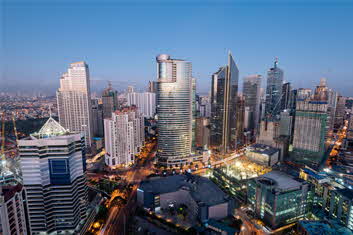
As the capital of Philippines, Manila serves as the country’s key economic, administrative, and social centre. It is also the hub for several industries such as chemicals, textiles, electronic goods, food & beverage, and tobacco products.
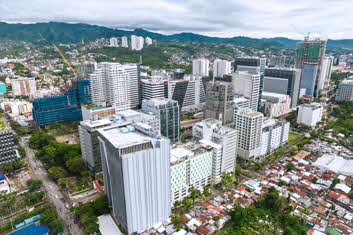
Cebu has a growing economy with industry investments and an expanding service sector. It is seeing a surge in tourism that has contributed to growth in the construction sector for hospitality, malls and real estate.
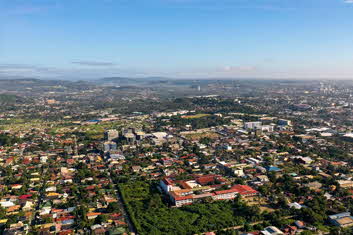
Davao City has established overland, air and shipping trade routes over the years. Major industries that can be found in the Davao region include agriculture, business process outsourcing sectors, cement & steel manufacturing, food & beverage, ICT, and mining & quarrying.
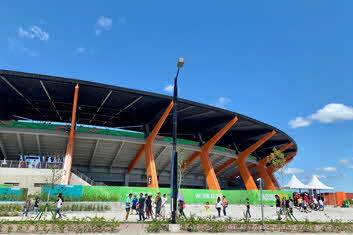
Located over 120 km north of Manila, New Clark City is a planned community in Central Luzon, aimed at decongesting Philippines’ densely-populated capital. It is positioned to be a new, green and smart disaster-resilient metropolis. NCC is estimated to have 1.12 million residents and 600,000 workers at full development by 2065.
Ways for you to start in Philippines
-
Learn about doing business in the Philippines and tap our range of programmes to set your business up for success.
-
Get in touch with partners, government agencies, and Singapore associations to help you enter the Philippines.

